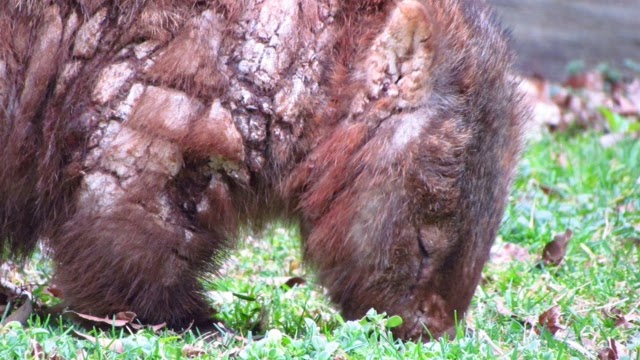However It’s important to note that only licensed wildlife carers are eligible to apply for and be granted permission to undergo training nose works for the benefit of our precious native animals
We can spend hours or even days looking for the orphaned baby wombat and even if we do rescue the foundling they are often so weak they can barely move away from mum. Before the babies weaken, they are very hard to track and catch. These babies can suffer from broken bones, they can end up with a parasite infestation from sheep, cattle and goats. Their immunity fails them without their mum and they’re very vulnerable.
You can imagine the chances are very few for us to find them in the scrub, so we are very hopeful about our tracking dog.
Sometimes too if the orphan is in reasonable health they’ll go to another wombat and insist that wombat be their protector. This intimidates the other wombat and they attack and reject the orphan, so the little orphan is truly on their own. Also callers report an adult wombat who might be hit by a car and injured. Other victims have disease and been cited by landowners or drivers so a wombat tracking dog will make life much easier because we can find the wombat or their burrow.
When tracking, I intend to keep this wombat tracking dog on a very long lead and expect great success from this exercise. My colleagues are very excited about it and I’m very grateful to Camelina from “ For Paws Sake “ to be so flexible to allow us to have this opportunity to serve and protect our beloved wombats.
Hopefully our “Wombat Dog” will help find the orphans in time to save more lives!



